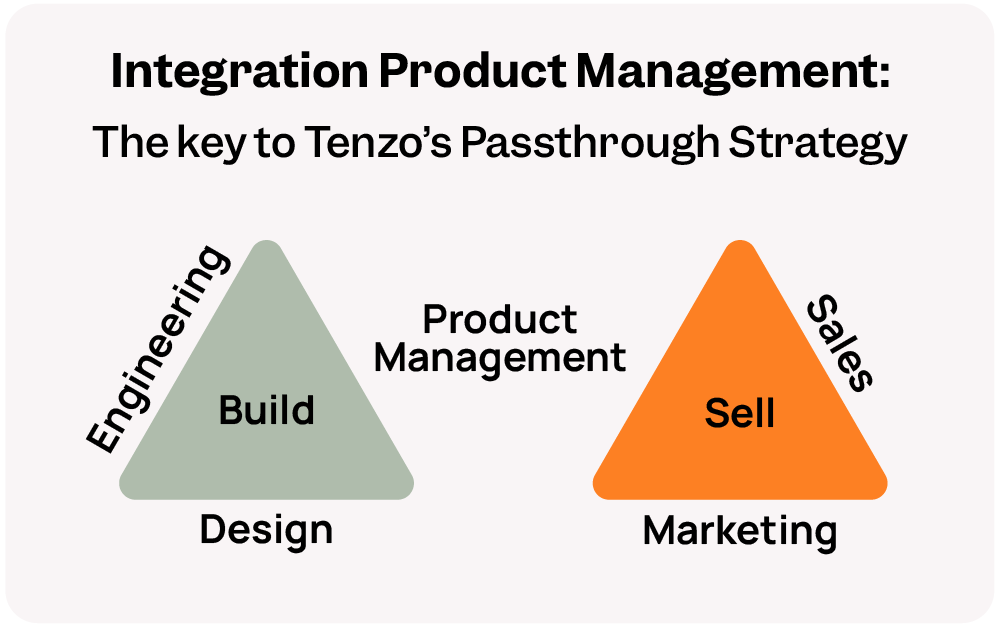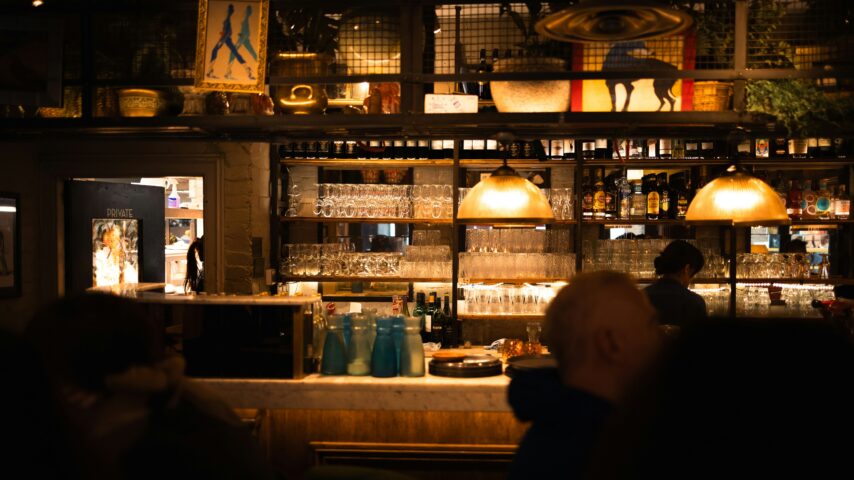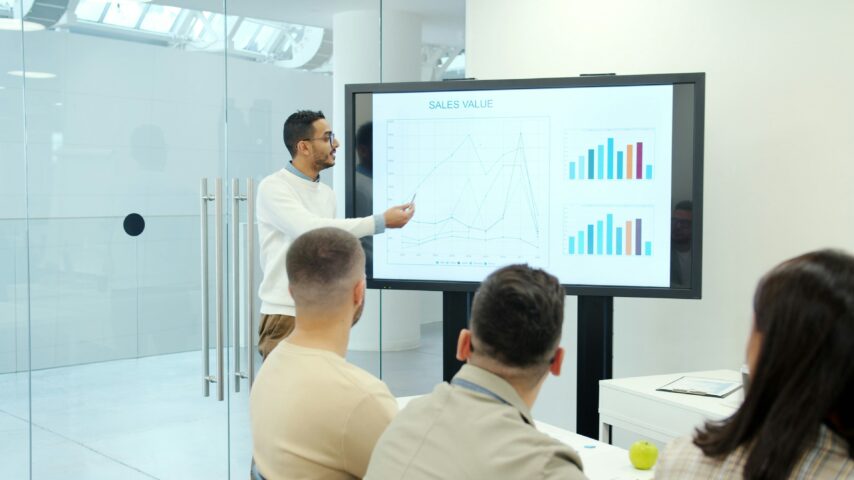In this article
- 1. Why Integration Strategy Matters in Hospitality Tech
- 2. Industry View: The Shift Toward One-to-Many Integration Models
- 3. Tenzo's Go-to-Market Strategy: Focus Drives Flywheel Momentum
- 4. The Bigger Vision: Becoming the Ecosystem Standard
- 5. Conclusion: The Flywheel Is Turning. Let's Build Together
1. Why Integration Strategy Matters in Hospitality Tech
Now, more than ever, restaurants expect their tech to be fully integrated. We’ve moved away from the age of all-in-one systems that do everything. There’s no such thing anymore as even the most ambitious players in the space draw their respective lines in the sand between what they will and will not do.
Given the vastness of the restaurant tech landscape, it’s simply impossible to do it all. Instead, the industry is moving towards modularity, where the best tools work seamlessly together. Succeeding in this world requires integrations to be done right.
At the same time, integrating is becoming increasingly challenging for software providers. This is because the level of integration, speed, and granularity that customers expect is becoming increasingly sophisticated. A few years ago, a daily number shared between systems was enough, but now restaurateurs want to own their data, have it accessible, and ideally in real-time, pushed automatically wherever they need it.
As Pete Saunders, Head of Hotel Relationships for Zonal, points out, the challenge of integrations is that customers “don’t have time to deal with multiple vendors and get these dirty integrations that just tick a box,[…] and it gets harder when you add multiple vendors”. (Minute 12:41 – Tech on Toast Podcast)
As expectations on integrations rise and the number of tech products available to restaurants increases, how do existing (and new) players keep up with the sheer amount of integrations needed?
Tenzo was founded nearly a decade ago to help restaurant teams unlock the value buried in their operational data. Along the way, we discovered something surprising: by building a robust ecosystem of integrations for our customers, we were also creating something invaluable for our partners.
2. Industry View: The Shift Toward One-to-Many Integration Models
Building integrations in hospitality tech is simply hard work. It takes deep technical knowledge, nuanced understanding of each use case, and strong commercial relationships. At Tenzo, we started by solving a straightforward problem: how do we help operators access the data they need to run more efficient cafes, restaurants, bars, pubs and food halls intuitively while juggling dozens of different platforms?
The first wave of work was relentless. We built one integration at a time, learning from each customer, and improving incrementally. We worked with our partners to give us enough access to build each one on our side, and also encouraged them to make changes to their APIs so that the customer could get the data they wanted. Our F&B background enabled us to understand which tech verticals were needed to give operators a holistic view of their performance.
This journey of building our first 90 integrations was essential in allowing us to understand what a universal standard could look like for the hospitality tech space, how to be efficient and fast, with the right level of granularity across the ecosystem.
Now we’re tackling the next hard thing: how do we scale the best of breed world for us? And then, how do we scale the best of breed world, full stop?
We stumbled upon a key concept: One-to-many integrations. The idea behind this is that there is a huge pain point in entering the hospitality tech space as a business that believes in the best-of-breed world. You have to go build each new integration; the slow, painful path we took.
But if we turn that idea on its head and open Tenzo’s infrastructure to allow others to grab the restaurant standardised data from our platform, we could have others build on Tenzo’s work instead.
In other words, by building into Tenzo you get access to all our ecosystem in one go. If a partner is coming to the UK, you are likely getting 80% to 90% of the operational pieces of the UK tech stack in one go.
We’ve gone from building integrations as a means to serve our restaurant customers to recognising that we can help the entire industry scale, partners included, by making integrations repeatable, reliable, and fast.
Our view is that by taking care of the integrations, our partners can continue doing what they’re best at, while giving our joint customers the most seamless integration experience possible.
3. Tenzo’s Go-to-Market Strategy: Focus Drives Flywheel Momentum
At Tenzo, our initial goal was to solve core reporting specifically for restaurants. We let that mission guide us, building integrations as customers asked for them and serving whoever aligned with our philosophy wherever they were in the world.
Tenzo’s go-to-market approach was product-heavy, as 100% of our customers need at least one partner platform to be in place for our product to function. During this time, we learnt how to build integrations.
When we first started, it sometimes took us 4 or 5 months to build one integration. Now we can sometimes do it in less than a week. Our product became more and more flexible to integrations, and the team building them became a well-oiled machine, becoming more proactive and value-focused as our intel on the industry players for each region improved.
Soon, those integrations weren’t just helping restaurants; they were also attracting attention from our partners. But it wasn’t until we doubled down on the UK, and defined a new category, Restaurant PerformanceOps, that we began to see the flywheel spin.
Partners became more and more interested in working with us – the legacy players who wouldn’t answer our emails 2 years ago were now coming to us actively wanting to work together. The more deals we closed, the more we integrated with more partners. Soon enough, others started coming to us. The flywheel was truly spinning. That’s when we decided to feed it back the other way.
What if we could help our partners even more by becoming the in-between for data to flow seamlessly?
Our product was now serving two audiences: the operators we set out to help, and the partners that power the broader tech stack.
As Klaus Kohlmayr from IDeaS puts it, “it’s not about best in breed or all in one but about having the best connected technologies. How do they come together, and how do you use them as a package to provide the best possible outcomes?” (minute 2.44 on linkedin interview: How Integrations Can Boost Hotel Tech)
Tenzo’s approach has evolved from providing a BI solution for restaurants to helping the Hospitality tech ecosystem thrive as it grows in scope and complexity.
The first unlock was a product-based GTM strategy based on integrations that is perhaps best summarised by Nan Yu, Head of Product at Linear. He offers a useful framework for thinking through the role of product management in go-to-market motions.“In Linear we think of product management as partially a go-to-market discipline in the same way that sales and marketing are. People usually talk about engineering, product and design working as a triad. But this other form of collaboration of product management, sales and marketing is really under-examined[…] When we come together, it shifts the way we think about selling[…] You’re taking the building side and the selling side of the business together, defining what’s possible and where the opportunities are.” (Minute 59.08 – Lenny’s Podcast)

Their take on product management crystallises what took us a few years to figure out:
Tenzo’s integrations product team doesn’t just react to what the next prospect is asking to bring into our product. What it does is drive our go-to-market strategy. For Tenzo, each integration is effectively both a new sales channel and an opening to a target market.
Passthrough layers a new business model on top, opening Tenzo as the one bringing a new target market and sales channel to each new integration partner. There are interesting network effects that begin to act in this new dynamic.
We’ve been building a hugely valuable product for restaurants, and in doing so, we’ve also created a B2B play for our partners to go to market faster and cheaper!
4. The Bigger Vision: Becoming the Ecosystem Standard
This realisation leads us to the broader ambition: becoming the trusted backbone and the standard of hospitality tech integration, quietly enhancing operations, and driving value by helping operators make better decisions every day.
When partners win, we win. That’s why we launched Passthrough: a product that lets partners leverage our infrastructure to scale faster. It’s something we were already doing for customers, but now it’s available as a service for the ecosystem.
We’re now scoping out the next phase: partner certification, letting vendors self-serve their way into the Tenzo ecosystem. The goal? A more connected industry, where integrations aren’t a bottleneck but a catalyst. Keep your eyes peeled for more on this very soon…
Like Pete Saunders said, messy custom integrations are a pain. We want to eliminate that pain, not just for our customers, but for everyone in the stack. As we see it, we don’t just want to be part of the stack; we want to make the stack work better for everyone. Including and especially for the restaurants. They should be the ones who own their data and decide where they want it to go.
5. Conclusion: The Flywheel Is Turning. Let’s Build Together
Scaling integrations is not just about speed; it’s about scale, discipline, and sustainability. We believe the key unlock is building on a one-to-many architecture, powered by the network effects of a focused ecosystem.
For partners heading to the UK, the value we provide is strongest. Lenny Rachitsky said it best: “If the service requires supply and demand to meet, it always started with a geographical constraint.” We learned that lesson the hard way and started by going wide. About 2 years ago, we switched the strategy and realised we needed to go deep into a specific region instead, and that was the UK, and more specifically, London.
The network effects of being the operational hub are strongest here, and we are now able to leverage them further. When a partner comes to the UK, we have a fast and quick solution for them to plug into the ecosystem. Each time a partner connects with us in the UK we start spinning the flywheel in the local ecosystem that partner has in their own region.
Now, the ecosystem we’ve built there is launching us into new markets – from Australia to North America, from Belgium to France.
When partners plug into Tenzo, they’re not just connecting to us – they’re joining a network that accelerates growth everywhere.
If you’re building in hospitality and want to integrate faster, we’d love to talk. Let’s connect, build, and grow together.





